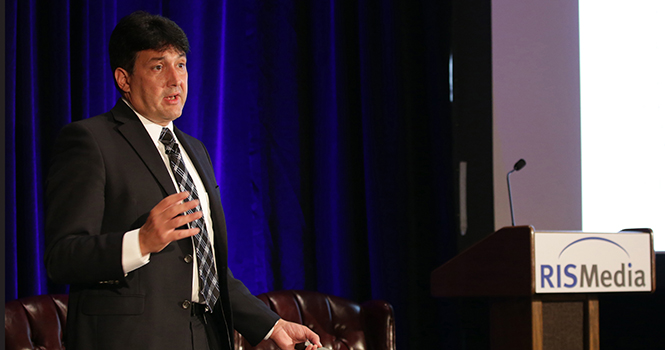Last week’s Presidential debate was a stark reminder, if not an ominous one: the election is approaching quickly and the real estate industry remains in the crossfire. Speaking at RISMedia’s CEO Exchange held at the Harvard Club of New York City, Ken Trepeta, president and executive director of The Real Estate Services Providers Council Inc. (RESPRO), informed the crowd that the results of the election could sway legislative changes that will impact the future of the industry.
While the housing market currently remains stable, Trepeta indicated that its modest pace need not cause worry. First-time homebuyers represent 32 percent of sales, as of July, down from its normal 40 percent, but still better than in recent months. The unadjusted median home price was $244,100, up 5.3 percent from last year (and a new record).
“Slow and steady wins the race,” he said. “We’re doing okay, and interest rates remain near historic lows. But the biggest fears come out of Washington.”
Thanks to the Mortgage Choice Act, opportunities still exist, however, rising debt in our economy looms overhead, with debt doubling in the last eight years. Unfortunately, large deficits are still forecast for the foreseeable future, said Trepeta. In addition, tax reform for the government sponsored enterprises (GSEs) is “not going to happen” in the next couple months, he predicted.
“Going forward, we won’t hear about it in the political campaigns, but we owe more money than the rest of the world as a government,” said Trepeta. “At some point, that’s got to start weighing on us.”
While the Consumer Financial Protection Bureau (CFPB) has begun to hold lenders more and more accountable, issues at the state level remain. The New York emergency rule remains, while in Texas, an effort to change title insurance laws is underway. Regardless of current legislation still in play, things may change come November when the dust from the highly polarizing election settles. Trepeta said it’s akin to the now-classic 1980 election, “where the debates will really mean something.”
“There’s legislative work to be done on a number of fronts, and a lot is contingent upon the election,” said Trepeta.
The Mortgage Control Act will continue getting attention. There’s still a “cautious approach” to guidance from CFPB on MSAs and other enforcement issues. Regardless of who wins, there’s still plenty more lobbying and educating to be done surrounding the important housing laws that will affect our country in the future, in addition to further educating the CFPB on how the industry actually works and what consumers actually view as benefits. Though as Trepeta mentioned, there are plenty of “behind-the-scenes opportunities” alive in the industry.
With so many balls in play and a litany of lingering questions, Election Day 2016 is bound to be the catalyst that will knock down the first of many dominoes for the real estate industry. Regardless of which direction it may fall, the housing industry is likely to endure some shifting as a trickle-down effect due to activity and on-going changes out of Washington.











